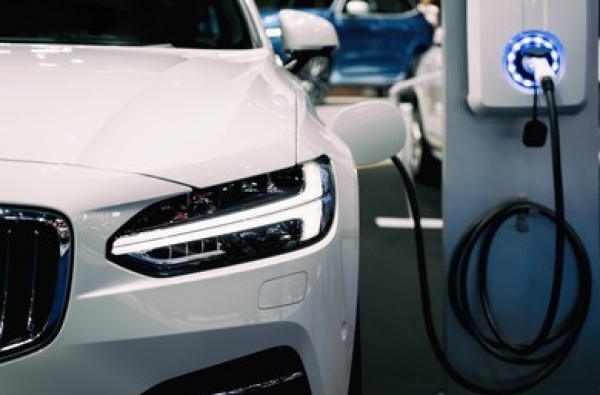All You Need To Know About Electric Car Charger Installation

Accessible electric car chargers and the infamous electric vehicle charging points; a simple box in the wall for electric automobiles – is what makes it all possible. A wall box is the quickest, safest and easiest way to recharge your electric vehicles at home.
This article contains everything that you need to know about these charging stations is right here:
Electric car chargers for your home
What’s necessary is a separate charging station for the safe and speedy home car charger install.
Why should you invest in home charging points?
Ensure your safety by using a domestic electric car charger
To communicate with your vehicle, a charging station is essential, and this guarantees that charging is safe. To meet this critical condition for sustainable mobility, we use charging equipment designed and installed by professionals.
Charging an electric vehicle at a house outlet isn’t necessary, no matter how convenient the emergency charging cable in the boot looks. Under most circumstances, neither the socket nor the structured wiring underneath it will be able to support such continuous loads for prolonged periods without having a negative impact. As a result, both independent testing institutes and car manufacturers advocate charging at a dedicated home charging station.
Enjoy the faster charging that Home EV Chargers provide
There lies another key determining component from the user’s perspective. This is the time it takes to complete charging. These chargers have a high charging capacity of between 11 to 22 kW, and this is because of the three-phase connection used.
As a result, charging at an EV charging station can be up to ten times faster than charging at any other residential outlet. As a result, “slow charging” is a relic from the past, and you enjoy a lot of freedom in your daily life.
The higher charging efficiency that comes with home car chargers
Home EV chargers function as a standalone private charging station. This provides you with another benefit that several consumers are unaware of. The greater the charging ability, the more efficient it is. This is because secondary consumers, such as battery monitoring, are active while charging. Lower charging time means less power consumption. However, its efficiency is also better. This is because residential car chargers consume less energy at greater charging powers. As a result, the charging station might even be economically profitable.
What should you consider while buying an electric car charger for your home?
To obtain the best-suited car charger, one must consider various factors:
Is your charger tethered or untethered?
A tethered wall box comes with a charging cable, whereas an untethered household EV charger only has one connection, and the cord separately plugs into this connection. You need not spend extra money on a cable in the first situation.
On the other hand, Untethered EV chargers do well in the incidence of newer technologies or even a modification in vehicles. This is because you simply just need to pay for the new cable instead of the installation of a new home car charger.
Is the charger eligible for an OZEV grant?
You might also be eligible for an OZEV grant of up to £350 on one vehicle for installing an OZEV-approved home charging station. Consider getting an EV charger after checking to see whether it is eligible for a grant or not. Other requirements for an OZEV grant include owning an electrical or plug-in hybrid vehicle and having off-street parking.
How fast is your domestic EV charger?
Finally, examine the speed or output of your domestic EV charger. The quicker the automobile charges, the larger the output. Consider your vehicle usage needs to establish just how much power is suitable for you. A quicker household automotive charger may be more appropriate. That’s if you regularly have to drive your vehicle for business or other purposes during the week and on weekends.
Home charging points
Far more users are choosing to set up their electric vehicle charging stations right next to their houses. You may charge your electric vehicle or van at home using electric vehicle charging points and also solutions for electric vehicles, and the cable makes this possible. As a result, you won’t need to be reliant on public charging facilities for electric automobiles.
They are the kind of domestic charging port that is economical and handy to have in the house or residential area. These Electric Car Charging Stations are efficient and environmentally sustainable.
You need not go to the charging station if you have your wall box. You could power your electric vehicle in one simple step once you get home. Our services, such as electric vehicle charger installation, are easily accessible to you.
Types of Chargers: There are several types of EV chargers through which your electric vehicles could get juice. Simply connect your car to a socket or charging unit to charge it. Several types of Electric vehicle charging stations are available to keep your electric car completely charged.
Slow chargers: Suited for charging your vehicle overnight. An electric car requires six to twelve hours to recharge, and they have a 3.6kW power rating.
Fast chargers
They range in power from 7 to 22kW and will charge an EV in about three to seven hours. There are several variants present in the market. You must now determine whatever sort of EV charging station you need.
Rapid chargers: These are the fastest since they can charge 80 per cent within twenty to forty minutes.
Charging cables for Electric cars
Charging cords have ports that plug into vehicles or EV charging sites. Depending on the automobile and the power rating of the Electric Vehicle Charging station, you should determine the charging connector.
What’s my electric car’s range? How long will it take to charge completely?
The most often asked question is how long it takes to recharge an electric vehicle. While fueling a car with gas takes a couple of moments, charging an EV from empty to capacity takes significantly longer. Electric vehicles can charge overnight when not in use, just like smartphones. The answer to these questions is most probably in your vehicle’s owner’s manual.
With a full charge, the range of an electric automobile currently ranges between 75 and 310 miles. This figure might vary based on driving habits, weather changes, and also battery conditions. The newer EVs, in particular, are suitable for longer journeys due to their efficient range and battery life.




